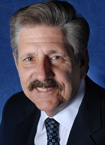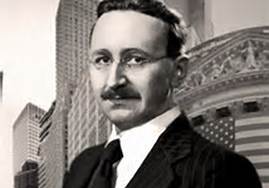Forty years ago, on October 9, 1974, the Nobel Prize committee announced that the co-recipient of that year’s award for economics was the Austrian economist, Friedrich A. Hayek. Never was there a more deserving recognition for one of the truly great free market thinkers of modern times.
The Nobel committee recognized his contributions, including “pioneering work in the theory of money and economic fluctuations and for [his] penetrating analysis of the interdependence of economic, social and institutional phenomena.”
Over a scholarly and academic career that spanned seven decades, Hayek was one of the leading challengers against Keynesian economics, a profound critic of socialist central planning, and a defender of the open, competitive free society.
The awarding of the Nobel Prize for Economics in 1974 represented capstone recognition to an intellectual life devoted to understanding the workings and superiority of social systems grounded in the idea and ideals of human freedom and voluntary association.
“Austrian” Influences on Hayek
Friedrich August von Hayek was born on May 8, 1899 in Vienna, Austria. He briefly served in the Austrian Army on the Italian front during World War I. Shortly after returning from the battlefield in 1918 he entered the University of Vienna and earned two doctorates, one in jurisprudence in 1921 and the other in political science in 1923. While at the university, he studied with one of the founders of the Austrian school of economics, Friedrich von Wieser.
But perhaps the most important intellectual influence on his life began in 1921, when he met Ludwig von Mises while working for the Austrian Reparations Commission. It is not meant to detract from Hayek’s own contributions to suggest that many areas in which he later made his profoundly important mark were initially stimulated by the writings of Mises. This is most certainly true of Hayek’s work in monetary and business-cycle theory, his criticisms of socialism and the interventionist state, and in some of his writings on the methodology of the social sciences.
In 1923 and 1924, Hayek visited New York to learn about the state of economics in the United States. After he returned to Austria, Mises helped arrange the founding of the Austrian Institute for Business Cycle Research, with Hayek as the first director.
Though Hayek initially operated the institute with almost no staff and only a modest budget primarily funded by the Rockefeller Foundation, it was soon recognized as a leading center for the study of economic trends and forecasting in central Europe. Hayek and the Institute were frequently asked to prepare studies on economic conditions in Austria and central Europe for the League of Nations.
Hayek as Opponent of Keynesian Economics
In early 1931, Hayek traveled to Great Britain to deliver a series of lectures at the London School of Economics. The lectures created such a sensation that he was invited to permanently join the faculty of the LSE. In the early fall of 1931 these lectures appeared in book form under the title Prices and Production. So widely influential did this book and his other writings become at the time that through a good part of the 1930s, Hayek was the third-most frequently cited economist in the English-language economics journals. (John Maynard Keynes and his Cambridge University colleague Dennis Robertson came in first and second.)
This began his decade-long challenge to Keynes’ emerging “new economics” of macroeconomics and its rationale for activist government manipulation through monetary and fiscal policy.
In 1931–1932, Hayek wrote a lengthy two-part review of Keynes’s Treatise on Money for the British journal Economica. It was considered a devastating critique of Keynes’ work, one that forced Keynes to rethink his ideas and go back to the drawing board.
At the same time, the Great Depression of the early 1930s served as the backdrop against which Hayek explained his own theory and criticized Keynes.
Monetary Mismanagement and the Great Depression
In Prices and Production (1931) and Monetary Theory and the Trade Cycle (1933) Hayek argued that in the 1920s the American Federal Reserve System had followed a monetary policy geared toward stabilizing the general price level. But that decade had been one of major technological innovations and increases in productivity. If the Federal Reserve had not increased the money supply, the prices for goods and services would have gently fallen to reflect the increased ability of the American economy to produce greater quantities of output at lower costs of production.
Instead, the Federal Reserve increased the money supply just sufficiently to prevent prices from falling and to create the illusion of economic stability under an apparently stable price level. But the only way the Fed could succeed in this task was to increase reserves to the banking system, which then served as additional funds lent primarily for investment purposes to the business community.
To attract borrowers to take these funds off the market, interest rates had to be lowered. Beneath the calm surface of a stable price level, interest rates had been artificially pushed below real market-clearing levels. That generated a misdirection of labor and investment resources into long-term capital projects that eventually would be revealed as unsustainable because there was not enough real savings available to complete and maintain them.
The break finally came in 1928 and 1929, when the Fed became concerned that prices in general were finally beginning to rise. The Fed stopped increasing the money supply, investment profitability became uncertain, and the stock market crashed in October 1929.
Hayek argued that the economic downturn that then began was the inevitable consequence of the investment distortions caused by the earlier monetary inflation. A return to economic balance required the writing down of unprofitable capital investments, a downward adjustment of wages and prices, and a reallocation of labor and other resources to uses reflecting actual supply and demand in the market.
But the political and ideological climate of the 1930s was one increasingly dominated by collectivist and interventionist ideas. Governments in Europe as well as the United States did everything in their power to resist these required market adjustments. Business interests as well as trade unions called for protection from foreign competition, as well as government support of various types to keep prices and wages at their artificial inflationary levels. International trade collapsed, industrial output fell dramatically, and unemployment increased and became permanent for many of those now out of work.
Throughout the 1930s Keynes presented arguments to justify activist monetary and fiscal policies to try to overcome the imbalances the earlier monetary manipulation and interventions had created. This culminated in Keynes’ 1936 book, The General Theory of Employment, Interest and Money, which soon became the bible of a new macroeconomics that claimed that capitalism was inherently unstable and could only be saved through government “aggregate demand management.”
Hayek and other critics of Keynesian economics were rapidly swept away in the euphoric belief that government had the ability to demand-manage a return to full employment.
Hayek as Critic of Socialist Central Planning
But while seemingly “defeated” in the area of macroeconomics, Hayek realized that what was at stake was the wider question of whether in fact government had the wisdom and ability to successfully plan and guide an economy. This also led him to ask profoundly important questions about how markets successfully function and what institutions are essential for economic coordination to be possible in a complex system of division of labor.
In 1935, Hayek edited a collection of essays titled Collectivist Economic Planning, which included a translation of Ludwig von Mises’ famous 1920 article, “Economic Calculation in the Socialist Commonwealth” on why a socialist planned economy was functionally unworkable. For the volume, Hayek wrote an introduction summarizing the history of the question of whether socialist central planning could work and a concluding chapter on “the present state of the debate” in which he challenged many of the newer arguments in support of planning.
This was followed by a series of articles over the next several years on the same theme: “Economics and Knowledge” (1937), “Socialist Calculation: The Competitive ‘Solution'” (1940), “The Use of Knowledge in Society” (1945), and “The Meaning of Competition” (1946). Along with other writings, they were published in a volume entitled, Individualism and Economic Order (1948).
Divided Knowledge and Market Prices
In this work Hayek emphasized that the division of labor has a counterpart: the division of knowledge. Each individual comes to possess specialized and local knowledge in his corner of the division of labor that he alone may fully understand and appreciate how to use. Yet if all of these bits of specialized knowledge are to serve everyone in society, some method must exist to coordinate the activities of all these interdependent participants in the market.
The market’s solution to this problem, Hayek argued, was the competitive price system. Prices not only served as an incentive to stimulate work and effort, they also informed individuals about opportunities worth pursuing. Hayek clearly and concisely explained this in “The Use of Knowledge in Society”:
“We must look at the price system as such a mechanism for communicating information if we want to understand its real function . . . The most significant fact about this system is the economy of knowledge with which it operates, or how little the individual participants need to know in order to be able to take the right action.”
In elaborating his point, Hayek wrote that “The marvel is that in a case like that of a scarcity of one raw material, without an order being issued, without more than perhaps a handful of people knowing the cause, tens of thousands of people whose identity could not be ascertained by months of investigation, are made to use the material or its products more sparingly.”
Hayek added: “I am convinced that if it [the price system] were the result of deliberate human design, and if the people guided by the price changes understood that their decisions have significance far beyond their immediate aim, this mechanism would have been acclaimed as one of the greatest triumphs of the human mind”
It was in this period, as well, that Hayek applied his thinking about central planning to current politics. In 1944 he published what became his most famous book, The Road to Serfdom, in which he warned of the danger of tyranny that inevitably results from government control of economic decision-making through central planning. His message was clear: Nazism and fascism were not the only threats to liberty. The little book was condensed in Reader’s Digest and read by millions, and resulted in Hayek going on a nationwide lecture tour in the United States that was a resounding success.
In 1949 Hayek moved to the United States and took a position at the University of Chicago in 1950 as professor of social and moral science. He remained there until 1962, when he returned to Europe, where he held positions at various times at the University of Freiburg in West Germany and the University of Salzburg in Austria.
The Spontaneous Order of Human Society
The realization that something so significant—the price system—was undesigned and not intended to serve the purpose it serves so well became the centerpiece of Hayek’s writings for the rest of his life. He developed the idea in several directions in another series of works, including, The Counter-Revolution of Science (1952); The Constitution of Liberty (1960); Law, Legislation and Liberty in three volumes (1973–1979); in various essays collected in Studies in Philosophy, Politics and Economics (1967) and New Studies in Philosophy, Politics, Economics and the History of Ideas (1978); and in his final work, The Fatal Conceit: The Errors of Socialism (1988).
His underlying theme was that most institutions in society and the rules of interpersonal conduct are, as the eighteenth-century Scottish philosopher Adam Ferguson expressed it, “the result of human action, but not the execution of any human design.” In developing this idea, Hayek consciously took up the task of extending and improving the notion of the “invisible hand” as first formulated by Adam Smith in The Wealth of Nations and refined in the nineteenth century by Carl Menger, the founder of the Austrian school of economics.
Hayek argued that many forms of social interaction are coordinated through institutions that at one level are unplanned and are part of a wider “spontaneous order.” To a large extent, he explained, language, customs, traditions, rules of conduct, and exchange relationships have all evolved and developed without any conscious design guiding them. Yet without such unplanned rules and institutions, society would have found it impossible to progress beyond a rather primitive level.
Another way of expressing this is that, in Hayek’s view, the unique characteristic of an advanced civilization is that no one mind (or group of minds) controls or directs it. In a small tribal society all members often share basically one scale of values and preferences; the chief or leader can know the potentialities of each member and can assign roles and duties so that the tribe’s physical and mental means can be applied more or less successfully to the common hierarchy of ends.
However, once the group passes beyond a simple level of development, any further social progress will require radical revision of the social rules and order: the complexity of social and economic activity will make it impossible for any individual to master the information necessary to coordinating the members of the group. Nor will the members continue to agree on preferences and values; their actions and interests will become more diverse.
An advanced society, therefore, must always be a “planless” society, that is, a society in which no one overall “plan” is superimposed over the actions and plans of the individuals making up the society. Instead, civilization is by necessity a “spontaneous order,” in which the participants use their own special knowledge and pursue their own individually chosen plans without a higher will or mind guiding them.
The Fallacy of Social Justice
The very complexity that makes it impossible to know all the information required to guide society, Hayek reasoned, makes it equally impossible to judge the “justice” or “worthiness” of an individual’s total actions. As a result, the popular call for “social,” or “distributive,” justice is inapplicable in a free society. Social justice requires not merely that individuals receive what is rightly theirs in general terms, but that individuals and groups also receive some stipulated distributional share of the society’s total output or wealth.
However, Hayek showed that in the market economy, distributions of income are not based on some standard of “deservedness,” but rather on the degree to which the individual has directly or indirectly satisfied consumer demand within the general rules of individual rights and property.
To attempt to distribute income shares by “deservedness” would require the government to establish some overarching standard for disbursing “social justice,” and would necessitate an economic system in which that government had the authority and the power to investigate, measure, and judge each person’s “right” to a share of the society’s wealth.
Hayek suggested that such a system would involve a return to the mentality and the rules of a tribal society: government would have to impose a single hierarchy of ends and would decide what each member should have and what should be expected from him in return. It would mean the end of the free and open society.
Hayek’s Appeal to Intellectual Humility
At the Nobel Prize ceremonies held in December 1974, at which the recipients received their awards, Hayek delivered a brief banquet dinner address in which he said that he wondered if there should be a Nobel Prize in a field like economics because the media often expects the award winner to deliver omniscient-like remarks on all the social and economic problems of the world.
The usefulness of Hayek receiving that Nobel Prize was that it enabled him to present a more formal lecture at the Nobel ceremonies on what he called “The Pretense of Knowledge,” a reminder that economists and policy-makers should remember that we all know far to little to presume to know enough to successfully plan and regulate the world through any political authority.
Thanks to his ideas, the 21st century can be a freer and more prosperous place in which to live, if we only we take to heart his appeal to intellectual humility, and allow each of us the liberty and latitude to plan our own lives with our individual limited knowledge, and rely upon the open market to coordinate all that we do through the competitive price system.
[Originally published at EpicTimes]





